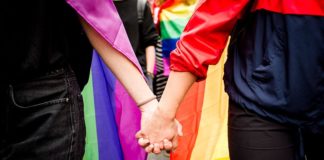
The Louisiana Department of Health’s (LDH) Office of Public Health (OPH) in Southwest Louisiana (Region 5) will host a drive-thru flu vaccination clinic at our Calcasieu Parish Health Unit (PHU) on October 10 to encourage everyone to get their flu shot. COVID-19 vaccines, both the primary series and the COVID-19 bivalent booster, as well as the monkeypox vaccine, will also be available.
The event will be held from 9 a.m. to 3 p.m. at the Calcasieu PHU, 3236 Kirkman St., in Lake Charles. All vaccines are available at no cost. However, if you have insurance it will be billed. If you have private insurance or Medicaid or Medicare coverage, bring along a valid insurance card. Any existing COVID-19 vaccine cards will be updated.
Flu vaccine guidance
CDC and LDH recommend that all individuals ages 6 months and older receive a flu shot by the end of October. The flu shot is particularly encouraged among high-risk populations such as pregnant women, children below the age of 5, adults age 65 and up, and immunocompromised children and adults with chronic health conditions such as diabetes, heart disease, and asthma.
COVID-19 vaccine guidance
CDC and LDH also recommend that everyone ages 6 months and up get vaccinated against COVID-19 and that everyone ages 5 and up get a booster as soon as they are eligible. The new bivalent booster is available and currently recommended for anyone 12 years and up who has already had their primary series and is at least 2 months out from their last dose.
Monkeypox vaccine eligibility
As of August 31, 2022, the expanded criteria for vaccination include people in Louisiana who meet one of the following:
- Gay/bisexual men or transgender people who are sexually active with more than one partner
- Anyone who is at high risk of monkeypox exposure. This includes but is not limited to people who:
- Are HIV positive or receive medications to prevent HIV infection (PrEP)
- Use IV drugs
- Give or receive money or other goods in exchange for sex
- Have significant, skin-to-skin contact with others in a social or sexual venue
- Work at establishments where sexual or intimate activity occurs (e.g., bathhouses, saunas, sex clubs, hotels)
- Clinicians or laboratory staff who are at high risk of occupational exposure
- Anyone who has been determined to be at high risk by a healthcare provider or public health official
While not new, monkeypox is a potentially serious viral illness caused by a virus not commonly seen in the United States, that is spread through close physical contact. The disease can make you sick, including a possibly painful rash, which may look like bumps on your skin, blisters or ulcers. Some people have a flu-like illness before they develop a rash.
According to CDC, early data suggest that gay, bisexual, same-gender-loving, and other men who have sex with men make up a high number of cases. However, anyone who has been in close, personal contact with someone who has monkeypox can be infected, regardless of sexual orientation or gender identity.
Monkeypox guidance
If your test for monkeypox is positive, stay isolated until your rash has healed, all scabs have fallen off and a fresh layer of intact skin has formed.








